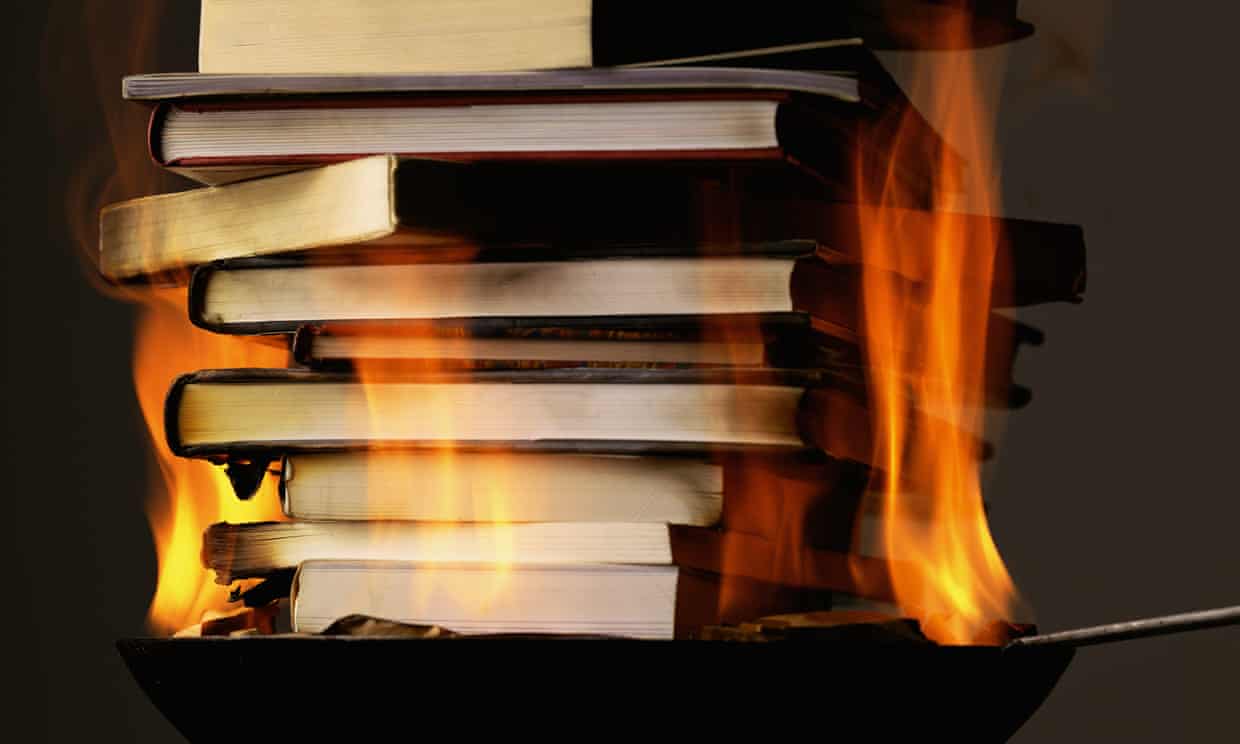
China
Book burning by Chinese county library sparks fury
Blaze complying with ministry directive meant for schools harks back to Qin dynasty and Nazi Germany, critics say
by Lily KuoA county library in north-western China has been criticised for burning books in line with a nationwide cull of “illegal” or “improper” materials used in school libraries.
Reports and photos of two women burning a pile of books outside the Zhenyuan county library in Gansu province emerged at the weekend. According to Chinese media, an article on the county’s website detailed a “removal and destruction” cleanup at the end of October, focusing on illegal, religious, and biased books.
Earlier in October, the ministry of education had ordered all primary and secondary schools to “firmly cleanse” their libraries of reading material deemed illegal, improper or outdated as part of efforts to “create a healthy and safe environment for education”.
Over the past year, China has focused especially on regulating what content young people see, from what can be posted online to how long minors can play video games. This year, officials have also called for an overhaul of “patriotic education” in schools.
The ministry of education directive orders the removal of books and other reading material that endanger national security, harm social stability or national honour. Books that promote superstition, illegal religious activities, or “incorrect global outlook and values” should also be culled.
Books deemed “improper” for students as well as those that are outdated and “of no value” should be taken out of circulation and stored at a different location.
The order gives schools until the end of March next year to report back on their efforts. The schools are to disclose the name of the author, publishing house and date, and ISBN numbers of all books falling under these banned categories.
The news of the book burning, now deleted from Zhenyuan county’s website, has prompted a wave of criticism from commentators and internet users who were reminded of the Qin dynasty, when books were burned and scholars burned alive as a way to control the populace and prevent criticism of the regime.
The prominent magazine Beijing News wrote in an editorial that was later censored: “How a society deals with books is a test of its attitude toward knowledge and civilisation and should never be arbitrary and barbaric. How did this happen? The relevant parties must investigate and respond to society’s concerns.”
Debate over the issue could still be found on Chinese social media. “All of a sudden Chinese history has gone back 2,000 years,” one user posted on Weibo. “When will the scholars start being buried?” another said.
“Horrifying. First you demonise public intellectuals, then you burn books. Is this a new Cultural Revolution?” one said, referring to China’s chaotic years of the 1960s and 70s, when intellectuals and others were attacked for holding on to old ways.
Some compared the news to Nazi Germany’s book burnings of the 1930s. “This is what Germany did last century,” one said. Another wrote sarcastically: “Ignorance is power.”